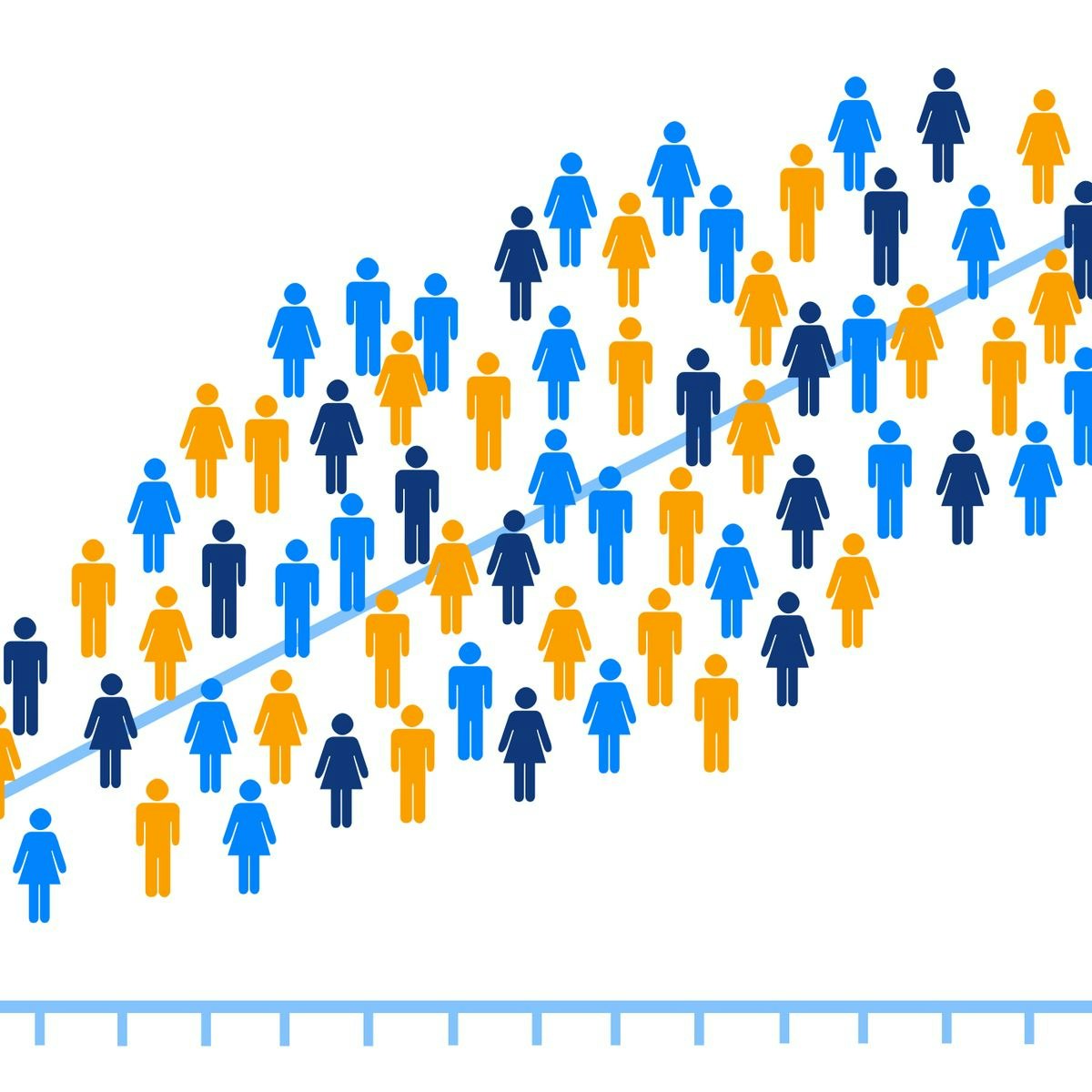Psychometrician
A Career as a Psychometrician
A psychometrician specializes in the science of measurement, specifically in the fields of psychology and education. This involves designing, developing, validating, and analyzing tests and assessments used to measure knowledge, skills, abilities, attitudes, personality traits, and other psychological constructs. Think of standardized tests like the SAT or GRE, personality inventories used in hiring, or clinical assessments for diagnosing conditions – psychometricians are the experts behind these tools, ensuring they are accurate, fair, and reliable.
Working as a psychometrician offers intellectually stimulating challenges. You might find excitement in the rigorous process of creating a new assessment, ensuring it truly measures what it intends to measure. The statistical analysis involved, uncovering patterns and ensuring fairness across different groups, can be deeply engaging. Furthermore, the impact of your work can be significant, influencing educational pathways, career selections, and even clinical diagnoses.
Core Responsibilities and Skills
The daily life of a psychometrician revolves around the lifecycle of assessments. This includes designing new tests, validating existing ones, and analyzing the data they produce. Collaboration is also key, as psychometricians often work closely with subject matter experts, educators, HR professionals, clinicians, or researchers.
Designing and Validating Assessments
A core task is the design of psychological tests and assessments. This involves defining the construct to be measured (e.g., mathematical ability, leadership potential, anxiety levels) and developing items (questions or tasks) that accurately capture it. Psychometricians meticulously review items for clarity, relevance, and potential bias.
Validation is equally crucial. This involves gathering evidence to ensure a test measures what it claims to measure (validity) and does so consistently (reliability). Psychometricians employ various statistical techniques and research designs to establish these properties, ensuring the test is sound and defensible.
Understanding the fundamental principles of measurement is essential for this work. Online courses can provide a solid grounding in these concepts.
These books offer deeper insights into measurement theory and practice.
Statistical Analysis of Test Data
Psychometricians are heavily involved in statistical analysis. After a test is administered, they analyze the resulting data to evaluate its performance. This includes examining item difficulty, item discrimination (how well an item differentiates between high and low scorers), test reliability, and evidence of validity.
Advanced statistical techniques like Item Response Theory (IRT), Factor Analysis, and Structural Equation Modeling (SEM) are commonly used. These methods allow for sophisticated analysis of test structure, item properties, and relationships between different measured constructs. Proficiency in statistical software like R, Python, or specialized programs like SPSS or AMOS is often required.
Building strong statistical skills is foundational. These courses cover essential statistical methods often used in psychometrics.
For those looking to delve into advanced modeling techniques, these resources are highly relevant.
These books provide comprehensive coverage of statistical methods relevant to psychology and multivariate analysis.
Collaboration and Communication
Psychometricians rarely work in isolation. They collaborate with diverse teams depending on the context. In education, this might involve teachers and curriculum developers. In HR, they work with hiring managers and talent development specialists. In research settings, they collaborate with other researchers and psychologists.
Effective communication skills are vital. Psychometricians need to explain complex statistical concepts and findings clearly to non-experts. They must translate technical results into practical recommendations and actionable insights for stakeholders.
Strong writing skills are also necessary for producing technical reports, documentation, and publications that detail the development, validation, and proper use of assessments.
Formal Education Pathways
Becoming a psychometrician typically requires advanced education, focusing on measurement, statistics, and psychology.
Undergraduate Foundations
A bachelor's degree is the first step. Common undergraduate majors include psychology, statistics, mathematics, or education. Coursework in statistics, research methods, and psychology provides a crucial foundation. Developing strong quantitative skills during this stage is highly recommended.
While a specific major isn't always mandatory, a strong background demonstrating analytical and quantitative aptitude is essential for success in graduate studies.
Exploring introductory statistics and research methods early on can help solidify interest and prepare for advanced coursework. OpenCourser offers resources in both Psychology and Mathematics.
Graduate Programs: The Core Requirement
A graduate degree is generally required to work as a psychometrician. Master's programs exist, often focusing on educational measurement or quantitative psychology, and can qualify individuals for certain roles, particularly those involving test administration or data analysis support (sometimes called psychometrists or assessment specialists).
However, a Ph.D. is often preferred, especially for roles involving independent research, advanced test development, and leadership positions. Ph.D. programs in Psychometrics, Quantitative Psychology, or Educational Measurement provide in-depth training in measurement theory, advanced statistics, research design, and specific testing methodologies like IRT and SEM.
Program structures can differ. Some are housed in Psychology departments, others in Education departments. Researching specific programs is key to finding the right fit based on faculty expertise and research focus. Lists of programs can sometimes be found through organizations like the APA Division 5 (Quantitative and Qualitative Methods) or the National Council on Measurement in Education (NCME).
Comparing programs internationally, such as between the US and Europe, reveals some differences. European programs might sometimes be labeled as "Work and Organizational Psychology" or "Occupational Psychology" when applied in a business context, and program length or structure (e.g., integrated Master's/PhD) can vary.
These advanced courses delve into modeling techniques often covered in graduate programs.
These books cover advanced modeling often taught at the graduate level.
Certifications and Licensure
Unlike clinical psychology, there isn't a universal mandatory license specifically for psychometricians in most regions. However, depending on the role and industry, certain credentials might be relevant or required.
For those administering clinical neuropsychological tests under supervision (often termed psychometrists or psychological assistants), certification might be available or preferred, such as through the Board of Certified Psychometrists (BCP). However, this is distinct from the role focused on test *development* and validation.
In some specialized areas or for certain government roles, specific qualifications or certifications related to assessment might exist. Membership in professional organizations like APA Division 5 or NCME is common and demonstrates commitment to the field.
Online and Independent Learning
While a formal graduate degree is the standard pathway, online learning and self-study can play significant roles in supplementing education, acquiring specific skills, or even helping individuals gauge their interest before committing to a full degree program.
Self-Study in Psychometric Theory
Foundational knowledge in psychometric theory, including concepts like reliability, validity, classical test theory (CTT), and item response theory (IRT), can be explored through textbooks, academic journals, and online resources. Understanding the "why" behind measurement principles is crucial.
Online platforms like OpenCourser offer courses in statistics and research methods, which are pillars of psychometrics. Learners can use the "Save to List" feature to curate a learning path tailored to their needs.
These courses provide foundational statistical knowledge valuable for understanding psychometrics.
Acquiring Complementary Skills Online
Modern psychometrics heavily relies on data analysis skills. Online courses are excellent resources for learning programming languages like R or Python, which are widely used for statistical analysis, data visualization, and running psychometric models. Proficiency in statistical software packages like SPSS is also valuable.
Beyond statistical software, skills in database management, data visualization tools, and potentially machine learning concepts are increasingly beneficial, especially as the field incorporates more technology-driven approaches.
These courses provide introductions to SPSS, a commonly used statistical software package.
Building a Portfolio Through Projects
For those exploring the field or supplementing formal education, practical projects are invaluable. This could involve analyzing publicly available datasets (e.g., educational survey data), attempting to replicate findings from published studies, or even designing a simple survey or short assessment for a specific purpose (while being mindful of ethical considerations).
Creating a small-scale validation study for a hypothetical test, documenting the process, item development, data collection (even if simulated or using hypothetical data), analysis, and interpretation can demonstrate practical understanding. Sharing such projects (e.g., via GitHub or a personal blog) can showcase skills to potential graduate programs or employers.
The OpenCourser Learner's Guide offers tips on structuring self-learning and making the most of online courses, which can be helpful when undertaking independent projects.
Career Progression and Opportunities
A career in psychometrics offers various paths for growth, typically starting with foundational roles and progressing towards greater responsibility and specialization.
Entry-Level Roles
With a Master's degree, or sometimes a Bachelor's degree coupled with relevant experience or certification (for psychometrist roles), individuals might start as research assistants, data analysts, or assessment specialists. These roles often involve supporting senior psychometricians in data collection, scoring, analysis, report writing, and test administration.
In testing companies or large organizations, entry-level positions might focus on specific aspects of the test development cycle, such as item writing coordination, database management, or quality control procedures.
These roles provide valuable hands-on experience with the practical aspects of assessment development and analysis.
Mid-Career Paths
With a Ph.D. or significant experience (often gained alongside a Master's), psychometricians move into roles with more autonomy. This could involve leading test development projects, conducting independent research, designing validation studies, managing assessment programs, or consulting.
Titles might include Psychometrician, Research Scientist, Measurement Scientist, or Assessment Manager. Specialization often occurs at this stage, focusing on specific industries (education, clinical, HR), testing types (large-scale standardized tests, clinical diagnostics, personnel selection), or advanced methodologies (IRT, SEM, adaptive testing).
Strong analytical, project management, and communication skills become increasingly important for success at this level.
Leadership Roles
Experienced psychometricians can advance to leadership positions. This might involve managing teams of researchers and psychometricians, setting the strategic direction for assessment programs within an organization, or overseeing research and development efforts.
Titles could include Director of Psychometrics, Chief Assessment Officer, Senior Research Scientist, or Principal Consultant. These roles often require a blend of deep technical expertise, leadership skills, strategic thinking, and the ability to influence stakeholders at various levels.
Some psychometricians also pursue academic careers as professors, conducting research, teaching graduate courses, and mentoring students in university settings.
Industry Applications
Psychometricians apply their expertise across a diverse range of industries, playing critical roles wherever objective measurement of human traits or abilities is needed.
Education and Standardized Testing
This is perhaps the most well-known application. Psychometricians design, develop, and validate large-scale standardized tests used for college admissions (SAT, ACT, GRE), K-12 accountability (state achievement tests), professional licensure and certification exams, and language proficiency assessments (TOEFL, IELTS).
They ensure these high-stakes tests are fair, reliable, valid, and legally defensible. They work for testing companies, government agencies, educational institutions, and credentialing bodies.
Healthcare and Clinical Assessment
In healthcare, psychometricians contribute to the development and validation of psychological and neuropsychological tests used for diagnosing mental health conditions (e.g., depression inventories, ADHD rating scales), assessing cognitive function (e.g., after brain injury), and measuring patient-reported outcomes in clinical trials.
They work in hospitals, research institutions, pharmaceutical companies, and organizations developing clinical assessment tools. Ensuring tests are sensitive, specific, and culturally appropriate is paramount in this sector.
Corporate and Industrial/Organizational Psychology
Businesses utilize psychometrics extensively in human resources for personnel selection, talent development, and performance management. Psychometricians design and validate pre-employment tests (cognitive ability, personality, situational judgment tests), leadership assessments, employee engagement surveys, and 360-degree feedback tools.
They help organizations make data-driven decisions about hiring, promotion, and employee development, aiming to improve workforce effectiveness and ensure fairness in HR practices. They might work in-house for large corporations or for HR consulting firms.
Ethical Considerations in Psychometrics
Ethics are central to psychometrics due to the potential impact of assessments on individuals' lives. Psychometricians adhere to strict professional standards to ensure fairness, validity, and appropriate use of tests.
Test Fairness and Bias
A major ethical responsibility is ensuring tests are fair and unbiased for all intended test-takers, regardless of demographic background (e.g., race, ethnicity, gender, socioeconomic status, disability). This involves rigorous statistical analysis (Differential Item Functioning - DIF) to detect items that may function differently for various groups, potentially indicating bias.
It also requires careful item development processes, including sensitivity reviews to avoid offensive or irrelevant content. The goal is to create assessments where score differences reflect true differences in the construct being measured, not irrelevant group characteristics.
Professional organizations provide guidance on ethical testing. The Standards for Educational and Psychological Testing, developed jointly by AERA, APA, and NCME, is a foundational document outlining ethical responsibilities.
Data Privacy and Security
Psychometricians handle sensitive personal data. Maintaining confidentiality and ensuring data security are critical ethical obligations. This includes secure storage of test responses and results, anonymizing data for research purposes where appropriate, and complying with data protection regulations (like GDPR or HIPAA).
With the rise of online and digital assessments, ensuring the security of testing platforms against breaches and unauthorized access is increasingly important. Test-takers must be informed about how their data will be used and stored.
Organizations like the Association of Test Publishers (ATP) often discuss best practices related to test security and data privacy.
Cultural Sensitivity and Adaptation
When tests are used across different cultures or languages, ensuring cultural appropriateness is vital. Directly translating a test is often insufficient; cultural adaptation is necessary to ensure the constructs measured and the item content are relevant and understood similarly across groups.
Psychometricians involved in cross-cultural assessment must be sensitive to cultural nuances that could affect test performance or interpretation. This may involve collaborating with local experts and conducting specific validation studies within different cultural contexts.
Emerging Trends and Research
The field of psychometrics is continuously evolving, driven by technological advancements and new research insights.
AI and Adaptive Testing
Artificial intelligence (AI) and machine learning are increasingly influencing psychometrics. AI is used to analyze large datasets, identify complex patterns, potentially improve scoring accuracy (e.g., automated essay scoring), and enhance test security (e.g., detecting cheating patterns).
Computerized Adaptive Testing (CAT), while not new, continues to be refined. CAT algorithms select subsequent test items based on a test-taker's previous responses, tailoring the test difficulty to the individual's estimated ability level. This often results in shorter, more efficient, and more precise measurement.
These books discuss adaptive testing concepts.
This course explores AI's impact on assessment in higher education.
Globalization and Standardization
As organizations and educational systems become more global, there's a growing need for assessments that can be used fairly and comparably across different countries and cultures. This drives research into cross-cultural test adaptation, translation methodologies, and establishing international norms.
Psychometricians work on developing frameworks and statistical techniques (e.g., measurement invariance testing) to evaluate whether tests function equivalently across diverse populations, ensuring meaningful comparisons can be made.
This book touches upon comparative analysis, relevant to global standardization efforts.
Interdisciplinary Integration
Psychometrics is increasingly integrating with other fields. For example, combining psychometric data with insights from neuroscience (e.g., using fMRI or EEG data alongside test scores) aims to provide a deeper understanding of the cognitive processes underlying test performance.
Integration with data science and learning analytics allows for the analysis of large-scale educational data to personalize learning pathways and improve instructional effectiveness based on assessment results. This interdisciplinary nature opens up new avenues for research and application.
Market Demand and Financial Outlook
The demand for psychometricians remains strong, driven by the increasing reliance on data-driven decision-making in education, healthcare, and employment.
Job Growth and Projections
While the U.S. Bureau of Labor Statistics (BLS) doesn't track "Psychometrician" as a distinct category, it often falls under broader categories like "Psychologists" or "Statisticians". Projections for psychologists suggest growth around 6-8% through the next decade, which is about average. However, specific demand for measurement expertise within psychology and related fields like data analysis is considered robust.
Growth areas include educational technology (EdTech), where assessments are integrated into online learning platforms, and talent analytics within HR, where data from assessments informs strategic workforce planning. Government agencies and testing companies remain significant employers.
Salary Expectations
Salaries for psychometricians vary based on education level (Master's vs. PhD), years of experience, industry, and geographic location. Recent data suggests average annual salaries often fall between $80,000 and $110,000, with potential to reach $140,000 or higher for experienced PhD-level professionals in leadership or specialized consulting roles.
According to Salary.com (as of early 2025), the average US salary is around $94,775, with a typical range between $80,738 and $107,299. Research.com reported a similar average of $93,290, with ranges from $62,000 to $139,000 depending on factors like experience and industry. ZipRecruiter data indicates an average hourly wage around $32.55, but with significant variation.
Roles requiring only a Bachelor's degree and certification (often psychometrist roles involving test administration) typically have lower salary ranges, sometimes starting around $30,000-$40,000, as suggested by some sources like ExploreHealthCareers.org, although these figures may be somewhat dated or specific to certain settings.
Industries with High Demand
Demand remains consistently high in traditional sectors like educational testing organizations (e.g., ETS, College Board, Pearson), government agencies (federal and state departments of education, military), and universities (research and institutional assessment roles).
Growth is particularly notable in the technology sector, especially EdTech companies developing learning platforms and assessment tools, and in large corporations investing heavily in talent analytics and data-driven HR practices. Healthcare assessment and clinical trial outcome measurement also represent areas of sustained demand.
Frequently Asked Questions
Psychometrician vs. Psychologist: What's the difference?
While related, these roles differ. A psychologist typically focuses on direct clinical practice (therapy, diagnosis) or broader research on behavior and mental processes. A psychometrician specializes specifically in the theory and techniques of psychological *measurement* – designing, developing, and validating tests.
Many psychometricians have psychology backgrounds, but their primary focus is on the tools of measurement rather than direct clinical service. Some psychologists might use psychometric tests, but psychometricians are the experts who create and validate them.
Can I become a psychometrician without a PhD?
Yes, but career options may be different. A Master's degree in psychometrics, educational measurement, or quantitative psychology can qualify you for roles like assessment specialist, data analyst, or research associate, often working under the supervision of PhD-level psychometricians.
These roles might involve test administration, scoring, data management, statistical analysis support, and contributing to test development projects. However, independent research, leading complex validation studies, and senior leadership positions typically require a PhD.
Is programming essential for modern psychometrics?
It is increasingly essential. While not universally required for every single role (especially more administrative or test administration-focused ones), proficiency in statistical programming languages like R or Python is highly advantageous and often expected for research and analysis roles.
These tools are used for complex statistical modeling (IRT, SEM), data manipulation, simulation studies, and visualization. Familiarity with SPSS or SAS might also be useful, but R and Python offer more flexibility and are widely used in academic and applied settings.
How competitive is the job market?
The job market is generally considered healthy but competitive, especially for desirable positions at top testing companies, research institutions, or universities. Because it's a specialized field requiring advanced education, the pool of qualified candidates is smaller than in broader fields.
Strong quantitative skills, relevant internship or research experience gained during graduate studies, proficiency in statistical software, and good communication skills enhance competitiveness. Networking through professional organizations like NCME and APA Division 5 can also be beneficial.
Are there remote work opportunities?
Yes, remote work opportunities exist and have likely increased in recent years. Many tasks involved in psychometrics, such as data analysis, report writing, research, and even some aspects of test development and virtual collaboration, can be done remotely.
However, some roles, particularly those involving direct test administration in clinical settings or requiring secure, on-site work for high-stakes testing programs, may necessitate physical presence. Availability of remote work varies significantly by employer and specific job function.
What ethical dilemmas are commonly faced?
Common dilemmas include balancing test security with transparency, ensuring fairness across diverse populations while maintaining measurement validity, interpreting results appropriately and avoiding overgeneralization, managing data privacy, and addressing the potential misuse of test scores.
Psychometricians constantly grapple with ensuring their tools are used responsibly and ethically, minimizing harm and maximizing the beneficial information assessments can provide, guided by resources like the Standards for Educational and Psychological Testing.
Concluding Thoughts
Embarking on a career as a psychometrician is a commitment to the rigorous science of measurement. It requires strong analytical skills, a deep understanding of statistics and psychology, and a dedication to ethical practice. While the educational path is demanding, often requiring graduate-level study, the field offers intellectually stimulating work with significant real-world impact across education, healthcare, and industry. If you are fascinated by understanding human abilities and traits through data and enjoy the challenge of creating fair and accurate measurement tools, psychometrics could be a rewarding path. Exploring foundational courses and resources on OpenCourser can be an excellent first step in evaluating your interest and building the necessary skills for this specialized and impactful career.



















